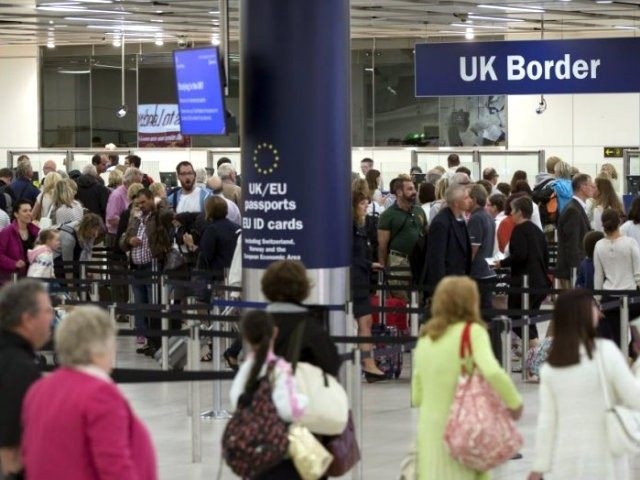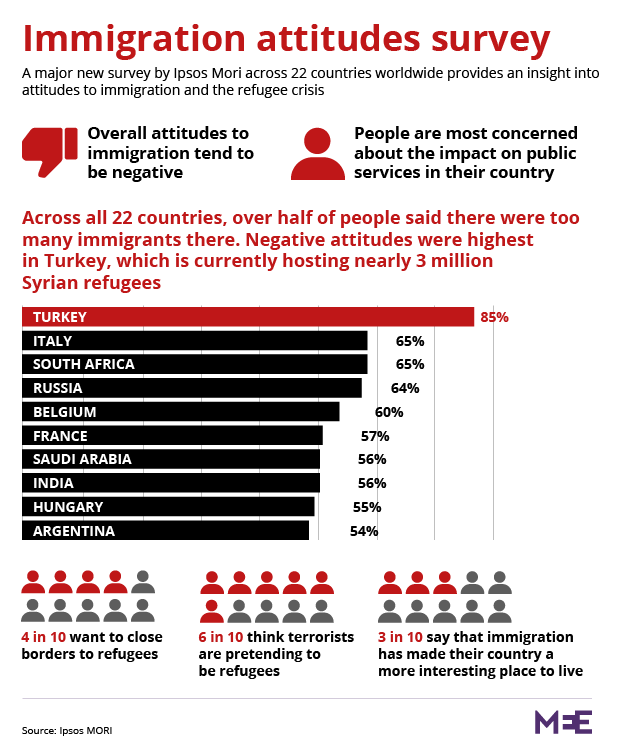Majority in 22 countries think there are too many immigrants: Poll

The majority of people in 22 states worldwide think there are too many immigrants in their countries, a landmark poll showed on Thursday.
Overall, about 60 percent of more than 16,000 people Ipsos MORI interviewed for the poll said they believed terrorists were posing as refugees amid the recent migration crisis.
Four in 10 people want to close borders to refugees, the poll found.
Those who believed immigration had a positive effect on their country were a minority in all 22 countries surveyed, although attitudes were most positive in Saudi Arabia, India, Canada, the UK and US.
Pollsters asked people in countries including Turkey, Sweden, Germany, France, Russia and Mexico about their general attitudes towards migration.
Across the 22 countries, only three in 10 respondents said immigration had made their country a more interesting place to live.
Negative attitudes towards immigration were generally highest in Turkey, which is currently hosting nearly three million Syrian refugees.
More than three-quarters said the presence of immigrants in the country had made it more difficult for Turkish nationals to get work.
The highest percentage of support for immigration was in Saudi Arabia, where 48 percent of people said newcomers had had a positive impact.
The proportion of people in the UK who think immigration has had a positive impact on the country rose from 28 percent in 2015 to 35 percent this year, while 49 percent said there had been too much immigration.
Concerns about pressure on public services seemed to be the main driver of negative attitudes among people surveyed across the 22 countries.
Middle East Eye propose une couverture et une analyse indépendantes et incomparables du Moyen-Orient, de l’Afrique du Nord et d’autres régions du monde. Pour en savoir plus sur la reprise de ce contenu et les frais qui s’appliquent, veuillez remplir ce formulaire [en anglais]. Pour en savoir plus sur MEE, cliquez ici [en anglais].





